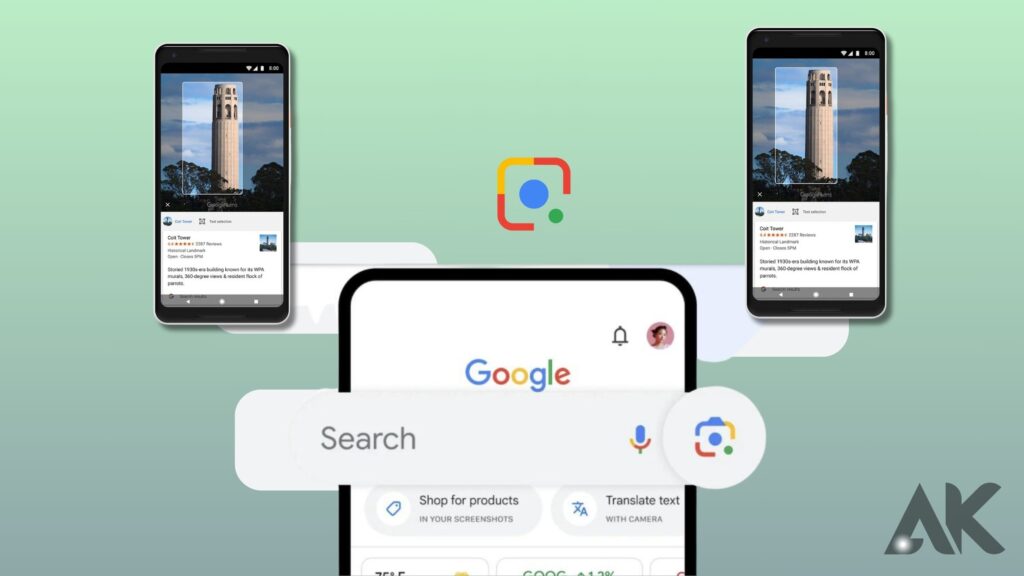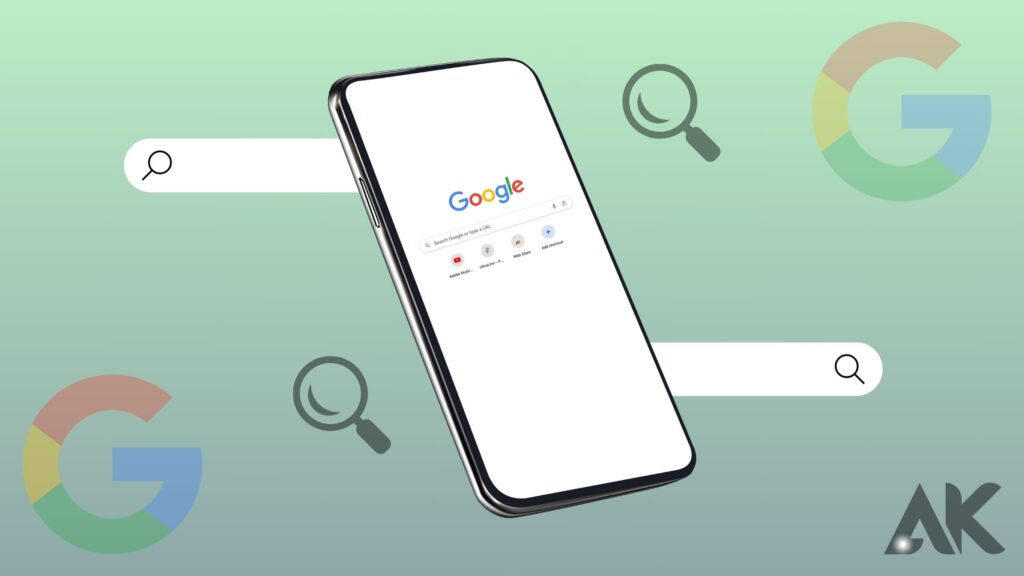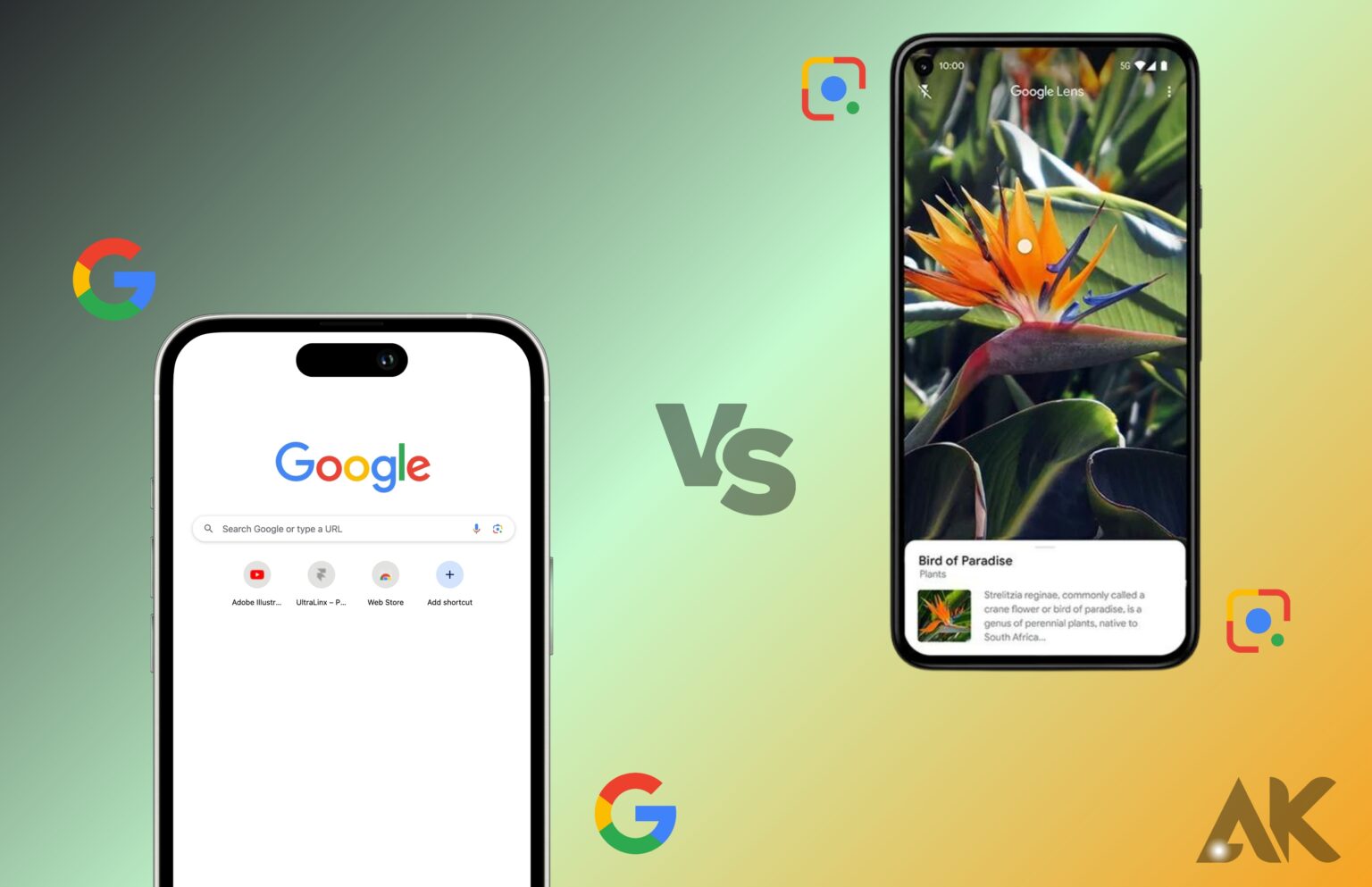The competition between lens AI and online search has heated up in the dynamic world of search technologies. To get the most out of your search engine, you need to be aware of when to enter and when to point and click. This essay explores this showdown extensively, offering insightful commentary and professional advice.
Try Google Lens’s powerful AI search.

As far as Google Lens is concerned, multimodal search is not novel. Lens has been available since its introduction in 2022, allowing users to search both photos and text. This allows them to do things like look up a specific car photo and then add the color “red” to narrow down the results.
Lens is getting an upgrade from Google that incorporates the tech giant’s new AI capabilities to provide a more intelligent experience. The following hypothetical situation is used by Google to illustrate the new capabilities of Lens: Consider the following scenario: You are perusing a yard sale when you come across a fascinating board game that is missing its box and instructions. If you want to get more specific answers from Google, they recommend snapping a picture of the game and then asking Lens questions like “What is this game and how is it played? Similar to how visual search functions with apps like ChatGPT, Lens will then use your photo to search the web for relevant information about the game.
This utility has several possible applications. The possibilities are endless: photograph a dish at a restaurant and have Lens teach you the recipe; photograph a landmark in a foreign city and have Lens explain its significance and history; photograph a trading card and have Lens tell you its set number and whether it’s rare or valuable. Assuming, of course, that it performs as promised, this device could have applications in the fields of education, nutrition, and general shopping.
Comparison Between Google Lens AI search vs regular Google search
Google is the creator of both Google Lens and Google Search; however, these two products serve different goals and include unique functions. Below is a comparison between Google Lens and Google Search:
- Purpose:
- Google Lens is primarily intended for visual search and analysis. Users can use their device’s camera to collect data about various objects, landmarks, text, and other elements by directly aiming the camera at them.
- Google Search is a text-based search engine that retrieves information in response to user queries. The generation of appropriate search results is dependent on the utilization of keywords and text input.
- Input Method:
- Google Lens allows users to engage with the application by capturing photographs or videos through the camera on their device. It analyses visual data and generates appropriate information or responses based on the visual input.
- Google Search: Users engage with Google Search by inputting queries into the search bar. The system handles text-based inquiries and provides a compilation of web pages, images, videos, and other pertinent data.
- Capabilities:
- Google Lens is a powerful tool that can detect and deliver information on various items, including plants and animals. It can also extract text from photographs and translate languages, among other features. The main objective is to comprehend and analyze the visual material.
- Google Search is a multifaceted tool that offers a broad range of information, encompassing text-based content, photos, videos, news, and other resources. It encompasses a wider range of user inquiries.
- Use Cases:
- Google Lens is good for tasks like real-time text translation, landmark information retrieval, object identification, and detail exploration in photos.
- Google Search is useful for locating websites, news articles, and a variety of text-based content in addition to providing general information retrieval and question answering.
- Integration:
- Google Lens is accessible through the Google Photos app, Google Assistant, and standalone mobile apps, in addition to being integrated into other Google products.
- Google Search is available via browsers, the search bar on the Google homepage, and is integrated into several Google services.
- Context:
- Google Lens improves user comprehension of the physical world by concentrating more on contextual data obtained from the visual world.
- Google Search serves a broad range of information needs by returning results based on the user’s explicit queries.
Google Search: The Ultimate Guide

Google runs a search engine that goes by several names: Google Search, Google, Google.com, and just Google. By inputting keywords or phrases, users can conduct Internet searches for information. Websites are ranked by Google Search according to how relevant they are to the user’s query, using algorithms. It is by far the most widely used search engine in the world.
By the year 2020, Google Search will have captured 92% of the worldwide search engine industry. More than 3.5 billion queries were processed daily by 2012.
No website receives more traffic than Google Search. According to data provided by Similarweb, around 26.75 percent of Google’s monthly global traffic originates from the US, 4.44 percent from India, 4.44 percent from Brazil, 3.92 percent from the UK, and 3.84 percent from Japan.
Google uses a priority ranking mechanism known as “PageRank” to determine the order of search results that are returned. Google Search also offers a wide variety of customization options, including the ability to use symbols to include or exclude certain search behaviors; it also provides specialized interactive experiences like weather forecasts, word definitions, currency, unit, and time converters, and flight and package tracking.
Conclusion
The battle between Web search and Lens AI has intensified, with the latter offering multimodal search capabilities. Google Lens, introduced in 2022, uses AI tools to make the search experience more insightful. The company’s latest update to Lens uses new AI tools to search the web based on a user’s photo, potentially useful for education, nutrition, or general shopping. Web Search, the most popular search engine globally, uses algorithms to analyze and rank websites based on relevance to search queries.
FAQS
Is Google search the same as Google?
Google runs a search engine that goes by several names: Google Search, Google, Google.com, and just Google. By inputting keywords or phrases, users can conduct Internet searches for information.
Why is my Google search different?
Google Search results could be identical or quite close to what another user gets. On occasion, though, Google’s results could fluctuate depending on factors like time, context, or tailored recommendations.

